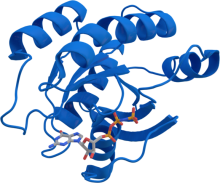How Metastatic Brain Tumors Affect Your Lung Cancer Care
Brain metastases are known to occur in approximately 25% of patients diagnosed with lung cancer. This webinar dives into the details of brain metastasis in lung cancer to explore their signs and symptoms. It also includes a discussion of treatment considerations. Through this webinar, you will learn to: Understand how brain metastasis occurs Keep an eye out for signs & symptoms of brain mets Understand treatment options and management techniques This webinar was created in partnership with LUNGevity Foundation and American Brain Tumor Association with support from Novocure. Hosts: Upal Basu










